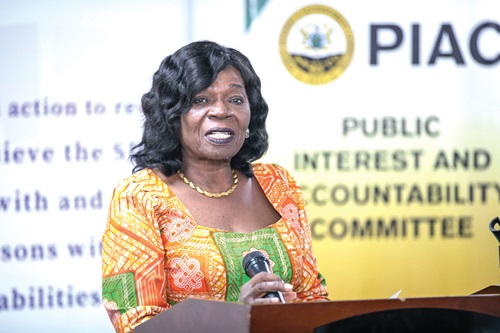
Declining crude oil production in Ghana: PIAC to meet over needed solutions
Declining crude oil production in Ghana spanning a four-year period will be the subject for discussion at a two-day technical consultative workshop in Accra.
The thrust of the workshop being organised by the Public Interest and Accountability Committee (PIAC) is to provide the platform for various stakeholders to offer the needed solutions to address the decline in crude oil production in the country from 2019 to 2023.
The workshop will be held in partnership with the Petroleum Engineering Department of the Kwame Nkrumah University of Science and Technology (KNUST), the Ghana National Petroleum Corporation (GNPC), the Ghana National Gas Limited Company (GNGLC), the Petroleum Commission (PC), the Ministry of Energy and other industry players.
The engagements at Wednesday and Thursday’s event at the Alisa Hotel will also aim at providing a comprehensive technical setting for stakeholders to have meaningful discussions and develop actionable solutions to the declining crude oil production in the country.
PIAC said the workshop would bring together about 300 participants, made up of PIAC members and staff, the Petroleum Commission, GNPC, GNGLC, government officials and policymakers; representatives from international oil and gas companies in Ghana, international industry experts from Norway, Libya, the United Arab Emirates, Indonesia, as well as local industry experts and consultants, civil society organisations, academia, researchers and the media.
The Chairperson of PIAC, Emerita Professor Elizabeth Ardayfio-Schandorf, said the workshop was also expected to provide an overview of the current oil production landscape in the country, identify the technical and regulatory challenges resulting in the decline, and provide and discuss innovative solutions and strategies to enhance oil production in the country.
She said in an interview that the workshop was expected to bolster collaboration among stakeholders to reverse the decline and maximise production for economic benefit.
Providing a background for the workshop, Emerita Prof. Ardayfio-Schandorf indicated that Ghana's upstream oil and gas sector had played a key role in economic development since the commencement of commercial production in the country on the Jubilee Field in 2010.
The industry has made increasing contribution to total government revenue since 2010, contributing an average of eight per cent over the last five years.
The Chairperson of PIAC said the "coming on stream of the Tweneboa, Enyenra, and Ntomme (TEN) fields in 2016 and the Sankofa Gye Nyame (SGN) fields in 2017 further propelled this growth with more revenues being accrued to support economic development".
"Over the last four years, however, crude oil production has been on a declining trend, sparking concerns about the future of the upstream petroleum sector if the technical challenges on the producing fields are not addressed, and additionally, no new fields are developed and/or investments attracted in the context of the threat posed by the global energy transition," she said.
Emerita Prof. Ardayfio-Schandorf explained that "as an accountability watchdog over the management and use of petroleum revenues, PIAC has reiterated its concern over the declining trend of crude oil production in its latest 2023 Annual Report on the management and use of petroleum revenues".
Production figures
Total crude oil production from Ghana's three producing fields has declined since 2019 when they produced more than 71.4 million barrels of crude oil, representing peak volumes since commercial production started in Ghana.
"Since then, production has been on a downward trend, with 66.9 million barrels being produced in 2020 and 55.1 million barrels in 2021. Production further declined to 51.7 million barrels in 2022, and 48.25 million barrels in 2023," the PIAC Report said.
The committee’s analysis also indicates that the average decline over the recent four-year period (from 2020 to 2023) stood at 10 per cent, and that the trend posed serious economic and strategic planning challenges, impacting negatively on revenue generation, energy security and overall economic stability if not halted.
